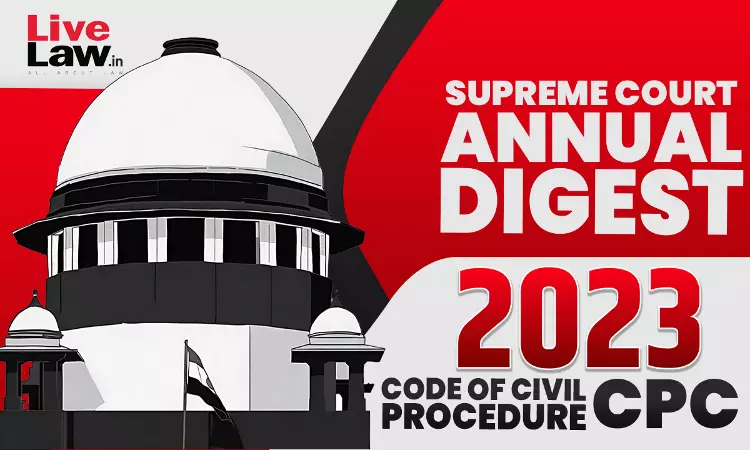Supreme Court Annual Digest 2023- Code Of Civil Procedure (CPC)
LIVELAW NEWS NETWORK
1 Jan 2024 2:15 PM IST

Next Story
1 Jan 2024 2:15 PM IST
Code of Civil Procedure, 1908 – Civil Trial - Fixing of the date of trial shall be in consultation with the learned advocates appearing for the parties to enable them to adjust their calendar. Once the date of trial is fixed, the trial should proceed accordingly to the extent possible, on day-to-day basis. (Para 2 (v)) Yashpal Jain v. Sushila Devi, 2023 LiveLaw (SC) 916 : 2023 INSC 948Code...
